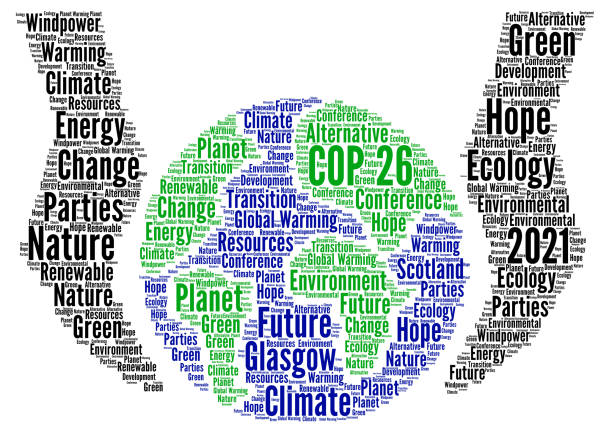Taking an A-level geography NEA (Non-Examined Assessment) is an opportunity for you to explore a geographical topic that piques your interest. You can use the opportunity to showcase your research and analytical skills while gaining valuable field experience by exploring the A-Level Geography investigation NEA Examples ideas.
What makes an NEA idea good is its individual experience. It’s a good idea to select a question based on something you’re interested in because your passion will show through your work and boost your investigation.
This write-up will provide you with a good compilation of exciting NEA ideas that are categorized into physical and human geography.
Table of contents
What is Geography Investigation NEA
Firstly, let’s define what a Geography Investigation NEA is. This is an assessment that allows you to conduct independent research and analysis on a geographical topic of your choice. It is a significant part of your overall A-level geography grade and requires you to demonstrate your skills in research, data analysis, and evaluation.
Geography NEA Examples
- 1. Investigate the impact of climate change on a local ecosystem
- 2. Analyze the effectiveness of a local waste management system
- 3. Explore the relationship between urbanization and air pollution
- 4. Investigate the impact of deforestation on local water resources
- 5. Analyze the effectiveness of coastal erosion management strategies
- 6. Explore the impact of tourism on local cultural heritage
- 7. Investigate the impact of agricultural practices on soil quality
- 8. Analyze the effectiveness of renewable energy sources in reducing carbon emissions
- 9. Explore the impact of globalization on local economies
- 10. Investigate the impact of natural disasters on local communities
- 11. Analyze the effectiveness of flood management strategies
- 12. Explore the impact of population growth on resource consumption
- 13. Investigate the impact of transportation on air quality
- 14. Analyze the effectiveness of urban greening initiatives
- 15. Explore the impact of climate change on food security
- 16. Investigate the impact of human activities on biodiversity
- 17. Analyze the effectiveness of conservation strategies for endangered species
- 18. Explore the impact of urbanization on water resources
- 19. Investigate the impact of deforestation on local wildlife
- 20. Analyze the effectiveness of sustainable agriculture practices
- 21. Explore the impact of globalization on cultural diversity
- 22. Investigate the impact of air pollution on human health
- 23. Analyze the effectiveness of waste reduction strategies
- 24. Explore the impact of climate change on coastal communities
- 25. Investigate the impact of tourism on local biodiversity
- 26. Analyze the effectiveness of water management strategies
- 27. Explore the impact of urbanization on wildlife habitats
- 28. Investigate the impact of climate change on global water resources
- 29. Analyze the effectiveness of renewable energy policies
- 30. Explore the impact of globalization on labor practices
- 31. Investigate the impact of deforestation on climate change
- 32. Analyze the effectiveness of urban renewal projects
- 33. Explore the impact of population growth on urbanization
- 34. Investigate the impact of transportation on wildlife habitats
- 35. Analyze the effectiveness of conservation policies for wetlands
- 36. Explore the impact of climate change on agricultural productivity
- 37. Investigate the impact of waste management on marine ecosystems
- 38. Analyze the effectiveness of renewable energy technologies
- 39. Explore the impact of globalization on food production
Geography NEA Examples
- 40. Investigate the impact of air pollution on wildlife
- 41. Analyze the effectiveness of green infrastructure projects
- 42. Explore the impact of population growth on resource depletion
- 43. Investigate the impact of deforestation on local communities
- 44. Analyze the effectiveness of coastal management strategies
- 45. Explore the impact of climate change on urbanization
- 46. Investigate the impact of tourism on local economies
- 47. Analyze the effectiveness of renewable energy subsidies
- 48. Explore the impact of globalization on environmental policies
- 49. Investigate the impact of transportation on climate change
- 50. Analyze the effectiveness of conservation policies for coral reefs
- 51. Explore the impact of population growth on water resources
- 52. Investigate the impact of waste management on air quality
- 53. Analyze the effectiveness of sustainable transportation policies
- 54. Explore the impact of climate change on wildlife habitats
- 55. Investigate the impact of deforestation on soil erosion
- 56. Analyze the effectiveness of urban heat island management strategies
- 57. Explore the impact of globalization on resource distribution
- 58. Investigate the impact of air pollution on crop productivity
- 59. Analyze the effectiveness of waste-to-energy technologies
- 60. Explore the impact of population growth on energy consumption
- 61. Investigate the impact of climate change on human migration
- 62. Analyze the effectiveness of conservation policies for migratory species
- 63. Explore the impact of urbanization on cultural heritage
- 64. Investigate the impact of tourism on local water resources
Geography NEA Examples
- 65. Analyze the effectiveness of renewable energy storage technologies
- 66. Explore the impact of globalization on urbanization
- 67. Investigate the impact of transportation on water quality
- 68. Analyze the effectiveness of conservation policies for forests
- 69. Explore the impact of climate change on local economies
- 70. Investigate the impact of waste management on soil quality
- 71. Analyze the effectiveness of sustainable building materials
- 72. Explore the impact of population growth on waste production
- 73. Investigate the impact of air pollution on human productivity
- 74. Analyze the effectiveness of green transportation technologies
- 75. Explore the impact of climate change on cultural heritage sites
- Investigate the impact of climate change on a particular region or ecosystem.
- Analyze the causes and consequences of soil erosion in a specific area.
- Examine the effects of deforestation on local biodiversity.
- Research the management of a national park or protected area.
- Investigate the impact of tourism on a coastal region.
- Analyze the causes and effects of a particular natural disaster, such as a hurricane or earthquake.
- Examine the use of renewable energy sources in a particular country.
- Research the effectiveness of conservation efforts for a particular endangered species.
- Investigate the impact of urbanization on rural communities.
- Analyze the causes and consequences of air pollution in a city.
- Examine the impact of globalization on a particular industry, such as agriculture or manufacturing.
- Research the management of a river basin or watershed.
- Investigate the impact of mining on a local community and the environment.
- Analyze the causes and effects of land degradation in a particular region.
- Examine the impact of agriculture on soil quality and the environment.
- Research the effectiveness of disaster response and relief efforts in a particular area.
- Investigate the impact of sea level rise on coastal communities.
- Analyze the causes and consequences of water scarcity in a particular region.
- Examine the impact of transportation on the environment and society.
- Research the effectiveness of eco-tourism initiatives in a particular area.
These are just a few examples of the many topics you could choose for your A-level Geography Investigation NEA. Remember to select a topic that you are passionate about and that allows you to demonstrate your skills and knowledge effectively.
Tips for Geography Investigation NEA
In addition to the above ideas, here are some tips to help you succeed in your Geography Investigation NEA:
1. Start early and plan your time effectively. Give yourself plenty of time to conduct research, analyze data, and write up your findings.
2. Use a variety of sources for your research, including academic journals, books, and online resources.
3. Ensure that your research is ethical and that you have obtained any necessary permissions.
4. Use appropriate data analysis techniques, such as statistical analysis or GIS mapping.
5. Be clear and concise in your writing, and ensure that your arguments are well-supported by evidence.
6. Pay attention to formatting and referencing guidelines, and ensure that your work is properly cited.
In conclusion, your Geography Investigation NEA is an opportunity for you to demonstrate your skills and knowledge in an independent research project.
Conclusion
With this diverse range of NEA ideas at your fingertips, you are on your way to finding a topic that ignites your passion for geography. The best NEA explores a question you are interested in. You need to get creative and personalize your investigation.
FAQS
To get full marks in geography NEA, you need to produce a high-quality piece of work that demonstrates your understanding of the subject and your ability to conduct research and analysis.
The introduction to your geography NEA should provide an overview of your topic and your research question. It should also explain why you chose this topic and what you hope to achieve with your research.
The word count for a geography A-level NEA varies depending on the exam board. However, it is typically around 3,000-4,000 words.
The conclusion of your geography NEA should summarize your main findings and conclusions. It should also discuss the implications of your research and suggest areas for further study.
Additional Resources
- 15 Best Community Schools in England | 2024 List
- How Many Hours Of Independent Study Should You Do At University?
- Can You Go To University Without Maths GCSE
- What Is Red Brick Universities? Amazing Facts in 2024
- Private Universities In Georgia In 2024 | Apply Now



